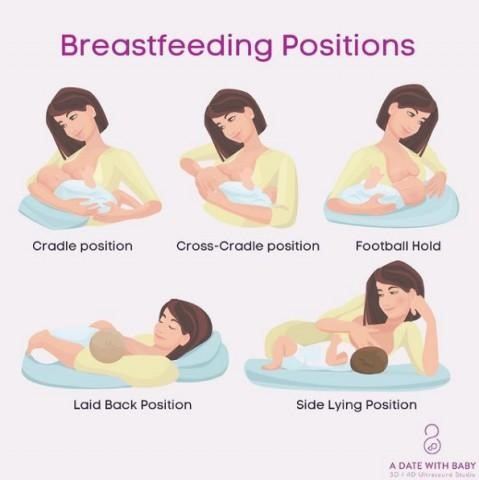A nurse is teaching a postpartum client about the benefits of breastfeeding.
Which of the following statements by the client indicates a need for further teaching?
Breastfeeding will help my uterus contract and reduce bleeding.
Breastfeeding will lower my risk of breast and ovarian cancer.
Breastfeeding will protect my baby from infections and allergies.
Breastfeeding will make my baby smarter and more attached to me.
The Correct Answer is D
Breastfeeding will make my baby smarter and more attached to me.
This statement indicates a need for further teaching because it is not based on scientific evidence and may create unrealistic expectations for the mother and the baby. Breastfeeding does not directly affect the baby’s intelligence or attachment, although it may provide some benefits for cognitive development and bonding.
Choice A is wrong because breastfeeding will help the uterus contract and reduce bleeding. This is a benefit of breastfeeding that helps the mother recover from childbirth and prevent postpartum hemorrhage.
Choice B is wrong because breastfeeding will lower the risk of breast and ovarian cancer. This is another benefit of breastfeeding that reduces the mother’s exposure to estrogen and other hormones that may promote cancer growth.
Choice C is wrong because breastfeeding will protect the baby from infections and allergies. This is a benefit of breastfeeding that provides the baby with antibodies and other immune factors that help fight off diseases and reduce the risk of allergies.
Nursing Test Bank
Naxlex Comprehensive Predictor Exams
Related Questions
Correct Answer is A
Explanation
Praise the client for choosing a suitable position for breastfeeding.The football hold is a common and comfortable breastfeeding position that allows the mother to support the baby’s head and help with latching.It is especially good for mothers who had a cesarean section, have large breasts, or are breastfeeding twins.
Choice B is wrong because there is no need to change to a cradle hold position if the mother and baby are comfortable with the football hold.
Different positions may work better for different mothers and babies.
Choice C is wrong because the mother does not need to support her breast with her hand during feeding.
This may interfere with the baby’s latch and cause nipple soreness.
Choice D is wrong because asking the client if she is experiencing pain or discomfort in her incision may imply that she is doing something wrong by holding her baby in that position.
It may also make the mother feel anxious or guilty about her pain.
The nurse should assess the incision site regularly and provide pain relief as needed, but not question the mother’s choice of breastfeeding position.

Correct Answer is ["A","B","E"]
Explanation
The correct answer is choice A, B and E.These foods are good sources of protein, calcium, iron, folate, vitamin B12, vitamin D, iodine, selenium, zinc, omega-3 fatty acids, and antioxidants that are essential for milk production and quality.
Choice C is wrong because coffee, tea, soda, energy drinks, chocolate, and alcohol are not nutritious foods and can have negative effects on the mother and the baby.They can cause dehydration, irritability, insomnia, poor weight gain, and fetal alcohol syndrome.
Choice D is wrong because whole grains, fruits, vegetables, vegetable oils, and herbs are not sufficient to provide all the nutrients needed by the mother and the baby.They are good sources of carbohydrates, fiber, vitamin C, vitamin E, and phytochemicals, but they lack protein, calcium, iron, folate, vitamin B12, vitamin D, iodine, selenium, and zinc.
The normal ranges for these nutrients are:
• Protein: 71 g/day for lactating women
• Calcium: 1000 mg/day for lactating women
• Iron: 9 mg/day for lactating women
• Folate: 500 mcg/day for lactating women
• Vitamin B12: 2.8 mcg/day for lactating women
• Vitamin D: 15 mcg/day for lactating women
• Iodine: 290 mcg/day for lactating women
• Selenium: 70 mcg/day for lactating women
• Zinc: 12 mg/day for lactating women
• Omega-3 fatty acids: 1.3 g/day for lactating women
• Antioxidants: no specific recommendation but fruits and vegetables are good sources
Whether you are a student looking to ace your exams or a practicing nurse seeking to enhance your expertise , our nursing education contents will empower you with the confidence and competence to make a difference in the lives of patients and become a respected leader in the healthcare field.
Visit Naxlex, invest in your future and unlock endless possibilities with our unparalleled nursing education contents today
Report Wrong Answer on the Current Question
Do you disagree with the answer? If yes, what is your expected answer? Explain.
Kindly be descriptive with the issue you are facing.
